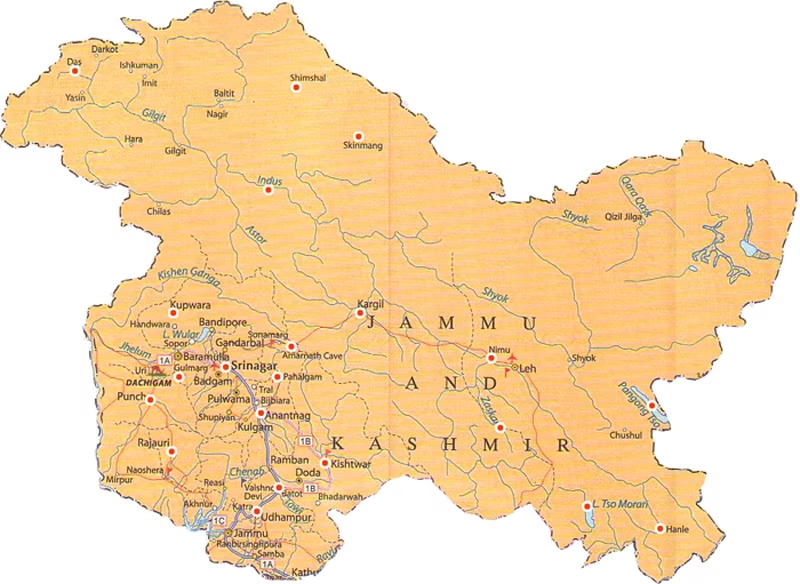Soon after the partition of the subcontinent, the state of Jammu Kashmir becomes the central focus of both governments. Pakistan was in the hope that the Maharaja of Jammu Kashmir Hari Singh will annex its state to Pakistan because of Muslim Majority where Prime Minister of India Jowair Lal Nehru had a personal relationship with Some state officials and Shaikh Abdullah. When Pakistani tribes attack Kashmir and Hari Singh seeks Indian help to eliminate tribes for the state of Jammu Kashmir, it becomes an international Issue and divided between India and Pakistan. Pakistan signed an instrument with the newly established government of AJK formally called Pakistan Administrated Jammu Kashmir.
This agreement is known as Karachi Agreement, the agreement remain hidden till 1992 when High Court of AJK was hearing a petition on Gilgit Baltistan and court nullify the Karachi Agreement but latter AJK’s supreme court restored it in its pure form. Since then it is being discussed widely in Pakistan, AJK and internationally.
Text of the agreement signed between Pakistan and Azad Kashmir Governments in March 1949. The Agreement was signed by the following:
- Honourable Mushtaque Ahmed Gurmani, Minister without Portfolio, Government of Pakistan.
- Sardar Mohammed Ibrahim Khan, the president of Azad Kashmir.
- Choudhry Ghulam Abbas, Head of All Jammu and Kashmir Muslim Conference.
This was the only Kashmiri political party on this side of the cease fire line at that time, and the Agreement it was persuaded to sign, very seriously limited the role of Azad Kashmir Government in the Kashmiri freedom struggle. Therefore it is no surprise that respective governments of Azad Kashmir have very little or no interest in the freedom of the State of Jammu and Kashmir.
t
A. Matters within the purview of the Government of Pakistan.
- Defence (as modified under….).
- Foreign policy of Azad Kashmir.
- Negotiations with the United Nations Commission for India and Pakistan.
- Publicity in foreign countries and in Pakistan.
- Co – ordination and arrangement of relief and rehabilitation of refugees.
- Co – ordination of publicity in connection with plebiscite.
- All activities within Pakistan regarding Kashmir such as procurement of food, civil supplies running of refugee camps and medical aid.
- All affairs of Gilgit – Ladakh under the control of Political Agent.
B. Matters within the purview of Azad Kashmir Government.
- Policy with regard to administration of AK territory.
- General supervision of administration in AK territory.
- Publicity with regard to the activities of the Azad Kashmir Government and administration.
- Advice to the honourable Minister without Portfolio with regard to negotiations with United Nations Commission for India and Pakistan.
- Development of economic resources of AK territory.
C. Matters within the purview of the Muslim Conference.
- Publicity with regard to plebiscite in the AK territory.
- Field work and publicity in the Indian occupied area of the State.
- Organisation of political activities in the AK territory and the Indian occupied area of the State.
- Preliminary arrangements in connection with the plebiscite.
- Organisation for contesting the plebiscite.
- Political work and publicity among the Kashmiri refugees in Pakistan.
- Advise the honourable minister without Portfolio with regard to the negotiations with the United Nations Commission for India and Pakistan.
You may also like
-
The History of India-Pakistan Wars: Conflicts, Causes, and Outcomes (1947–2025)
-
5 January Resolution: A Conditional trap for Kashmiris
-
Independent and Sovereign state of JK : 99% vote for it.
-
Joint Awami Action Committee’s struggle in AJK
-
16-point Charter of Democracy from Joint Awami Action Committee
